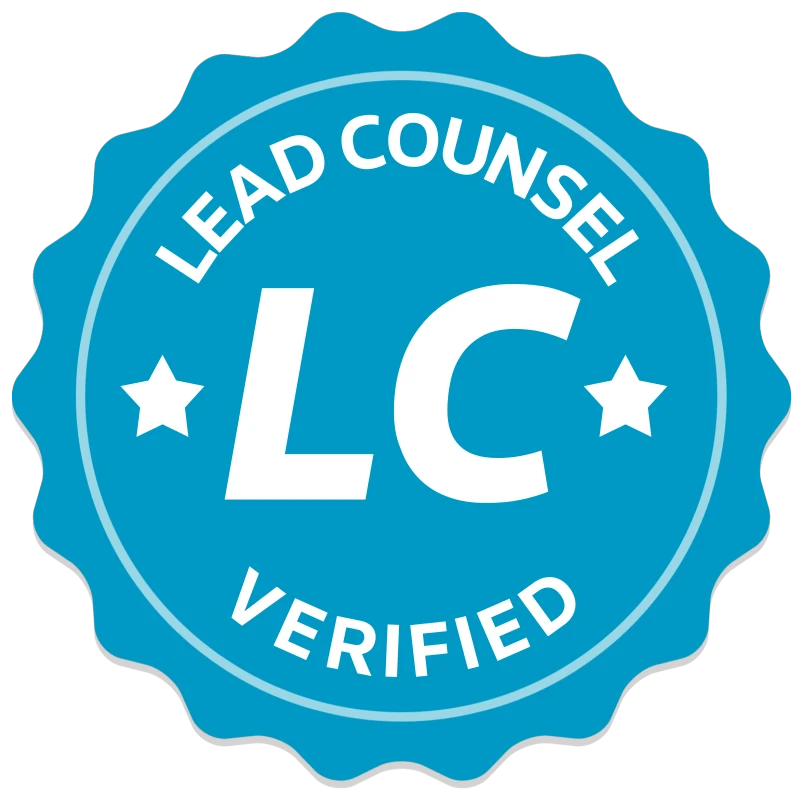
In the realm of legal matters, personal injury law (aka tort law) stands as a pivotal safeguard for individuals who have suffered harm due to the negligence or misconduct of another party. This branch of law encompasses a diverse range of cases, each intertwined with its own set of circumstances and nuances.
Basics of Personal Injury Law
At its core, personal injury law addresses cases in which an individual’s physical, emotional, or psychological well-being has been compromised due to the actions or inactions of another. It extends its reach to instances where a duty of care has been breached, leading to avoidable harm.
Central to personal injury cases are key concepts such as negligence, duty of care, causation, and damages. Negligence, often the linchpin of these cases, hinges on the notion that every individual should act responsibly to prevent causing harm to others.

Proudly Serving Duluth and All of Georgia Contact us to start your recovery! Explore Our Practice Areas
Kinds of Cases
Personal injury law covers a broad spectrum of scenarios. There are numerous types of cases that can occur, but some common examples include:
1. Car accidents: These involve injuries caused by collisions between vehicles, including drivers, passengers, pedestrians, or bicyclists.
2. Slip and fall accidents: These occur when someone slips or trips and falls due to a hazardous condition on someone else’s property, leading to injuries.
3. Medical malpractice: This refers to injuries caused by the negligence, incompetence, or intentional misconduct of healthcare professionals, such as doctors, nurses, or hospitals.
4. Product liability: These cases involve injuries caused by defective or unsafe products, including malfunctioning equipment, harmful medications, or contaminated food.
5. Workplace accidents: Employees can file personal injury claims for injuries sustained on the job due to unsafe working conditions, inadequate training, or negligence on the part of the employer or co-workers.
6. Dog bites: If someone is bitten or attacked by a dog due to the owner’s negligence or failure to control the animal, a personal injury case can be pursued.
7. Assault and battery: When someone intentionally and unlawfully injures another person, the victim can file a personal injury claim against the aggressor.
8. Nursing home abuse: This involves cases where elderly individuals are mistreated, neglected, or abused in nursing homes or other elder care facilities.
9. Defamation: In some instances, false statements that harm a person’s reputation can lead to emotional distress and financial loss, resulting in a personal injury lawsuit.
10. Construction accidents: When construction workers are injured due to unsafe conditions, inadequate safety equipment, or the negligence of others on a construction site, they may be able to pursue a personal injury claim.
It is important to note that these are just a few examples, and personal injury cases can arise from various other situations where someone is harmed due to someone’s negligent behavior, recklessness, or intentional actions of another party.
Personal Injury Claim and Statute of Limitations
When filing a personal injury claim, it is crucial to be aware of the statute of limitations. This is the timeframe within which a claim must be filed. Each jurisdiction has its own statute of limitations, and it varies depending on the type of personal injury case. The purpose of the statute of limitations is to prevent individuals from filing claims years after the incident occurred.
It encourages individuals to pursue their claims promptly while evidence and witnesses are still readily available. Therefore, it is essential to consult with a personal injury lawyer who can guide you through the legal process and ensure that your claim is filed within the required timeframe. Failing to meet the statute of limitations could result in the loss of your right to seek compensation for your injuries.

Click to contact our personal injury lawyers today
How to Win a Personal Injury Case?
Winning a personal injury case involves several key steps. Here’s a general guide:
1. Hiring the right attorney: Choose an attorney experienced in personal injury cases who has a good track record. Look for positive reviews, recommendations, and a history of successful settlements or trial verdicts.
2. Gather evidence: Collect as much evidence as possible to support your case. This may include accident reports, medical records, photographs, videos, witness statements, and any other relevant documentation. Preserve all evidence and provide it to your attorney.
3. Establish negligence: Your attorney will help you establish negligence on the part of the defendant. They will investigate the case, review the evidence, and determine who may be held responsible for your injuries.
4. Prove causation: It’s crucial to establish a direct link between the defendant’s negligence and your injury. Your attorney will work to demonstrate that the defendant’s actions (or lack thereof) directly caused your injuries and losses.
5. Document damages: Keep detailed records of all your injuries, medical treatments, expenses, and any other damages you suffered. Your attorney will use this documentation to calculate the compensation you’re entitled to.
6. Negotiate a settlement: Your attorney will negotiate with the defendant’s insurance company on your behalf to try to reach a fair settlement. They will leverage the evidence and legal arguments to advocate for maximum compensation.
7. Prepare for trial: If a settlement cannot be reached, your attorney will prepare your case for trial. This involves building a strong legal strategy, conducting depositions, hiring expert witnesses, and presenting your case in court.
8. Represent you at trial: Your attorney will present your case to the judge and jury, cross-examine witnesses, and argue for your rights. They will do their best to convince the jury of your claims and seek a favorable verdict.
9. Appeal if necessary: If the verdict is not in your favor, your attorney can guide you through the appeals process, seeking to have the decision overturned or argued in a higher court.
It’s important to remember that every personal injury case is unique, and outcomes can vary depending on the specific details. Having a skilled Duluth personal injury attorney will greatly enhance your chances of successfully winning your personal injury case.

Complete a Free Case Evaluation form now
Compensation in Personal Injury Cases
Compensation in personal injury cases aim to restore the life of an injured person as closely as possible to its pre-incident state. This compensation may encompass medical expenses, lost wages, pain and suffering, and in extreme cases, punitive damages.

Importance of Legal Representation in Filing a Personal Injury Lawsuit
Hiring an attorney for your personal injury case can have numerous benefits. First and foremost, an attorney will have the knowledge and experience necessary to navigate the complex legal system and help you file a lawsuit. They will know how to gather evidence, collect witness statements, and build a strong case on your behalf.
An attorney will also be able to accurately assess the value of your claim and negotiate with insurance companies to ensure you receive a fair settlement. Additionally, having an attorney by your side can alleviate the stress and burden of dealing with legal matters on your own, allowing you to focus on your recovery.
Overall, hiring an attorney will greatly increase your chances of obtaining a favorable outcome and receiving the compensation you deserve for your injuries.
Conclusion
In a world where accidents and negligence can disrupt lives, personal injury law serves as a beacon of hope for those seeking justice and recompense. If you find yourself ensnared in the complexities of such a case, remember that the legal system offers a path toward healing and restoration. Seeking guidance from a proficient personal injury attorney can guide you towards reclaiming what was lost and navigating the path ahead.
Frequently Asked Questions
- What qualifies as a personal injury case?
Personal injury cases involve harm caused by the negligence of another party, resulting in physical, emotional, or psychological injury.
- Is there a time limit for filing a personal injury claim?
Yes, there is a statute of limitations, varying by jurisdiction, which determines the timeframe within which a claim must be filed.
- How is compensation calculated in personal injury cases?
Compensation considers economic damages (medical bills, lost wages) and non-economic damages (pain and suffering).
- Can I handle a personal injury case without an attorney?
While possible, having a personal injury attorney significantly enhances your chances of a favorable outcome.
- What costs are associated with hiring a personal injury attorney?
Personal injury attorneys often work on a contingency fee basis, meaning they only get paid if you win your case.
Call or text 404-951-3513 or complete a Free Case Evaluation form











